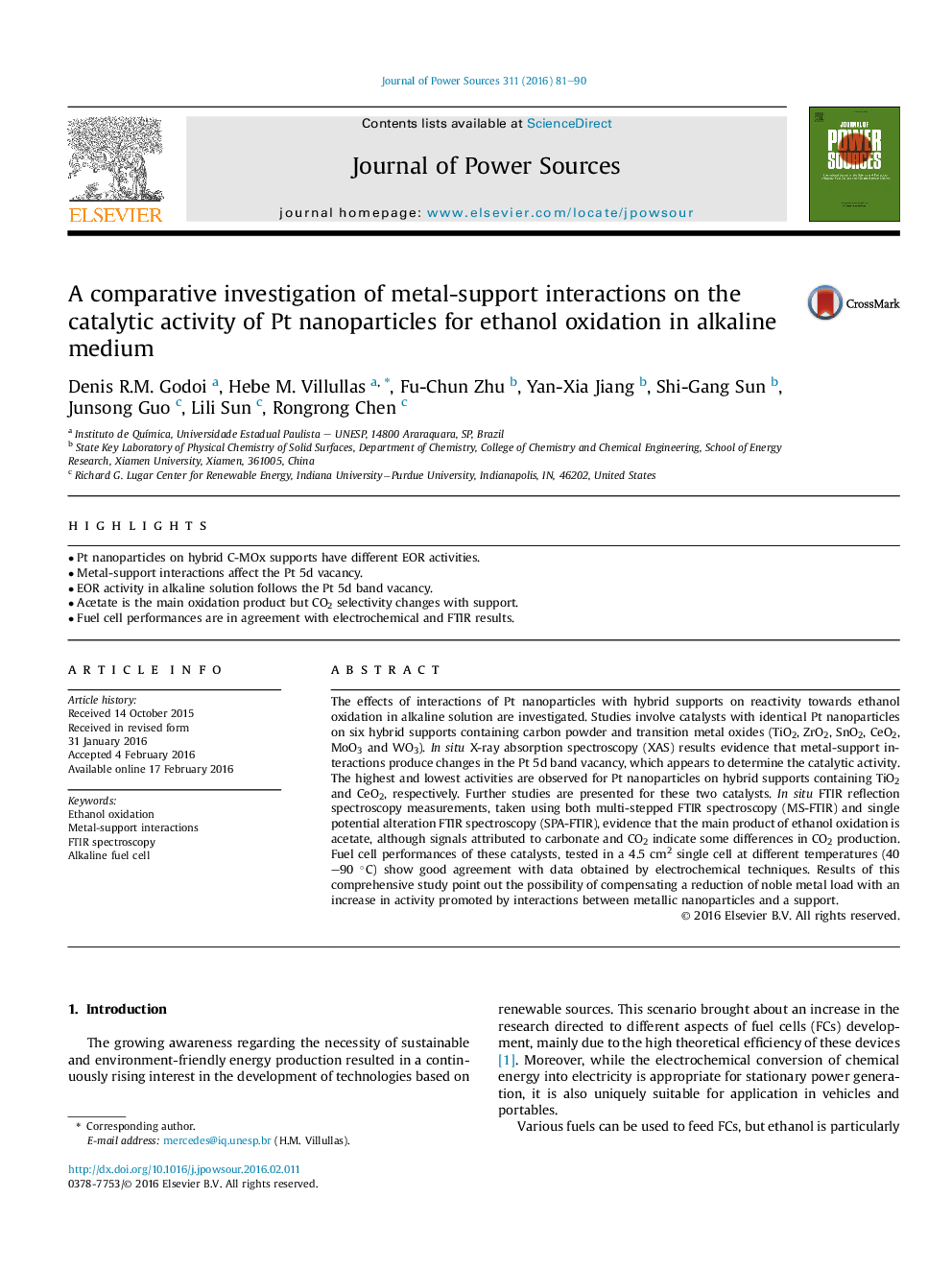| Article ID | Journal | Published Year | Pages | File Type |
|---|---|---|---|---|
| 1283699 | Journal of Power Sources | 2016 | 10 Pages |
•Pt nanoparticles on hybrid C-MOx supports have different EOR activities.•Metal-support interactions affect the Pt 5d vacancy.•EOR activity in alkaline solution follows the Pt 5d band vacancy.•Acetate is the main oxidation product but CO2 selectivity changes with support.•Fuel cell performances are in agreement with electrochemical and FTIR results.
The effects of interactions of Pt nanoparticles with hybrid supports on reactivity towards ethanol oxidation in alkaline solution are investigated. Studies involve catalysts with identical Pt nanoparticles on six hybrid supports containing carbon powder and transition metal oxides (TiO2, ZrO2, SnO2, CeO2, MoO3 and WO3). In situ X-ray absorption spectroscopy (XAS) results evidence that metal-support interactions produce changes in the Pt 5d band vacancy, which appears to determine the catalytic activity. The highest and lowest activities are observed for Pt nanoparticles on hybrid supports containing TiO2 and CeO2, respectively. Further studies are presented for these two catalysts. In situ FTIR reflection spectroscopy measurements, taken using both multi-stepped FTIR spectroscopy (MS-FTIR) and single potential alteration FTIR spectroscopy (SPA-FTIR), evidence that the main product of ethanol oxidation is acetate, although signals attributed to carbonate and CO2 indicate some differences in CO2 production. Fuel cell performances of these catalysts, tested in a 4.5 cm2 single cell at different temperatures (40–90 °C) show good agreement with data obtained by electrochemical techniques. Results of this comprehensive study point out the possibility of compensating a reduction of noble metal load with an increase in activity promoted by interactions between metallic nanoparticles and a support.
